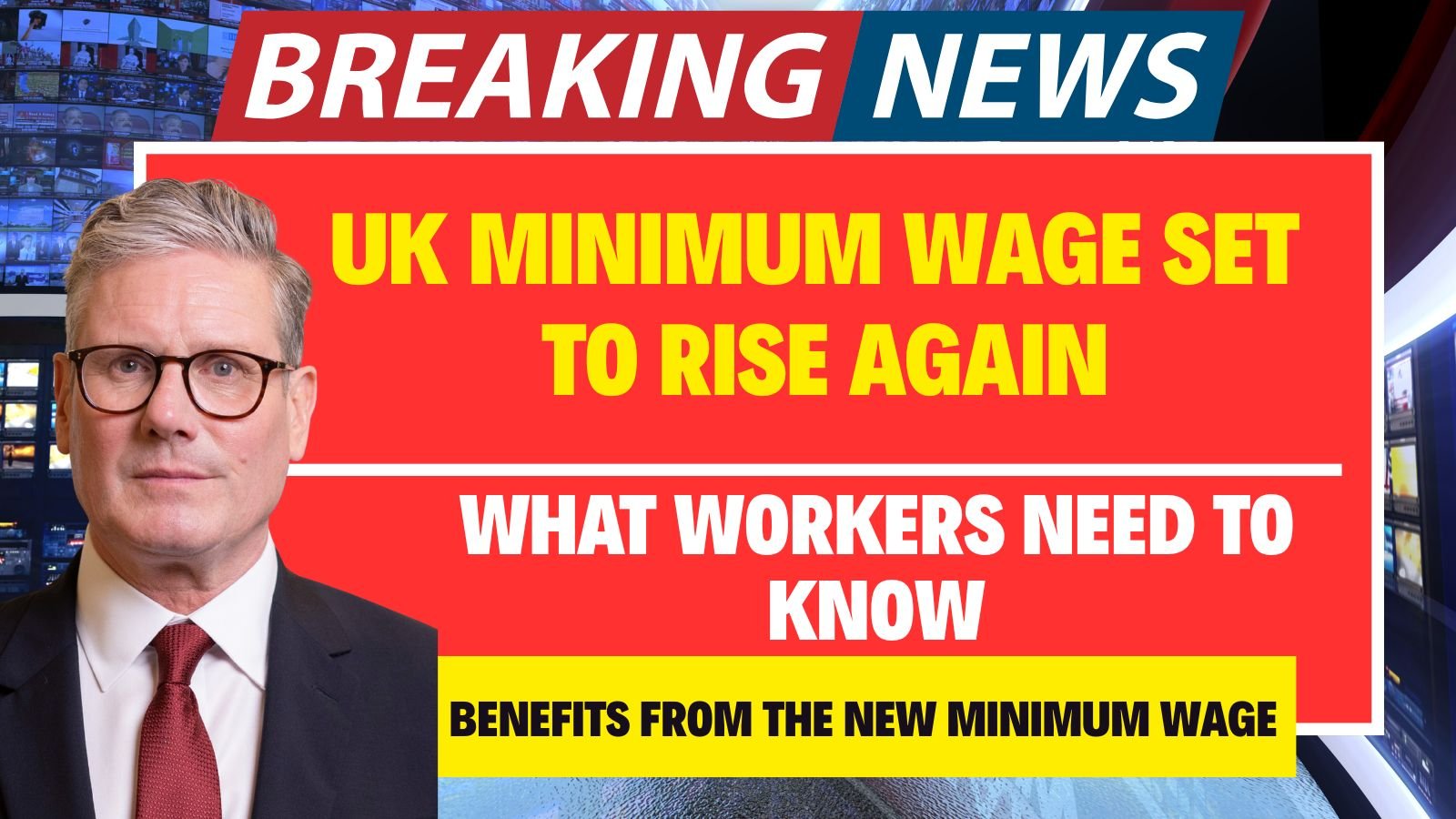A new mid-year UK Minimum Wage increase has been officially confirmed by the UK government, bringing positive news for millions of workers. Effective 1 July 2025, this increase reflects the government’s continued commitment to supporting workers amid ongoing cost-of-living pressures. The change is designed to ensure that more UK citizens, particularly those in lower-income brackets, can keep up with inflation and rising daily expenses.
From retail to healthcare, hospitality to manufacturing, the wage increase will affect employees across a wide range of sectors. Let’s explore who benefits, what the new pay rates look like, and how this fits into the government’s larger economic plan.
Why Is the UK Minimum Wage Increasing Again in 2025?
In response to inflationary pressures and public demand for more equitable compensation, the UK government is adjusting both the National Minimum Wage and National Living Wage mid-year. The UK Minimum Wage hike in July 2025 is a continuation of wage growth efforts that began earlier in the year, with record increases introduced in April.
The July update is largely driven by recommendations from the Low Pay Commission (LPC), based on the latest labor market data and economic trends. It is also part of the government’s vision for a “high-wage, high-skill economy”, aiming to reduce income inequality and strengthen consumer spending.
Who Benefits from the New Minimum Wage Increase?
The UK Minimum Wage applies to all eligible workers based on their age and employment status. Whether you’re working part-time, full-time, or on a zero-hour contract, if you meet the age and eligibility criteria, your employer must pay you the updated wage starting 1 July 2025.
Beneficiaries include:
- Workers aged 21 and over (National Living Wage earners)
- Employees aged 18 to 20
- Workers under 18
- Apprentices in approved apprenticeship programs
- Part-time workers
- Casual or seasonal employees
- Zero-hour contract employees
Employers across the UK are required by law to implement the new pay structure. Failure to comply may result in penalties, fines, and public listing by HM Revenue and Customs (HMRC).
Also Read – Maruti XL7 2025: The Perfect Blend of SUV Style, Hybrid Mileage and Smart Features for Indian Families
New UK Minimum Wage Rates Effective July 2025
Here are the updated UK Minimum Wage rates effective 1 July 2025:
| Age Group / Employment Status | Current Rate (April 2025) | New Rate (July 2025) |
|---|---|---|
| Age 21 and over (Living Wage) | £11.44 | £11.76 |
| Age 18 to 20 | £8.60 | £8.90 |
| Under 18 | £6.40 | £6.70 |
| Apprentices | £6.40 | £6.70 |
This represents an average increase of 2.5% to 3% across most pay brackets. The government hopes these raises will help close the income gap between entry-level employees and more senior roles, while giving a financial boost to young workers and apprentices.
When Will the Pay Increase Take Effect?
The new UK Minimum Wage rates come into force on 1 July 2025. Workers should see the new rates reflected in their first complete pay period after this date. It’s important to monitor your payslips to ensure your employer has implemented the increase.
If you suspect that your updated wage has not been properly applied:
- Speak with your HR department or payroll team
- File a complaint with ACAS (Advisory, Conciliation and Arbitration Service)
- Report wage violations to HMRC
Employers who fail to pay the updated rate can face legal action, fines, and public penalties.
Wider Impact of the UK Minimum Wage Increase
The July 2025 UK Minimum Wage adjustment is more than just a number change—it reflects an important step in tackling economic inequality. The increased pay rates are expected to provide financial relief for households struggling with:
- Rising rent and mortgage costs
- Higher grocery and energy bills
- Transportation and fuel expenses
This wage boost is especially timely as inflation continues to moderate, giving the government room to support workers without adding fiscal pressure.
Furthermore, the wage increase is expected to:
- Encourage workforce participation among younger adults and students
- Help businesses attract and retain talent
- Stimulate consumer spending, especially in local economies
- Promote a more sustainable and equitable economic recovery
What Employers Need to Do
Employers must ensure that their payroll systems are updated to reflect the new minimum wage rates starting 1 July 2025. This includes:
- Adjusting hourly rates for all affected employees
- Reviewing contracts for apprentices and part-time staff
- Communicating changes to staff clearly and in writing
Businesses that underpay employees risk financial penalties and reputational damage. To avoid issues, employers should regularly consult HMRC and Low Pay Commission updates and seek payroll advice if needed.
Final Thoughts: The Importance of the July 2025 Wage Hike
The UK Minimum Wage increase in July 2025 is a positive step forward in supporting workers through economic uncertainties. Whether you’re a young apprentice, part-time employee, or full-time adult worker, this adjustment puts more money into your pocket at a time when it’s most needed.
By knowing your rights and staying informed, you can ensure you receive the pay you deserve. Likewise, employers have a critical role to play in implementing these changes fairly and efficiently.
This mid-year increase shows that wage growth is still a top priority in the UK’s evolving economy—and it’s a clear sign of continued support for workers from all walks of life.
Some Important Link
| Telegram Group | Click Here |
| WhatsApp Group | Click Here |
| Home Page | Click Here |
















